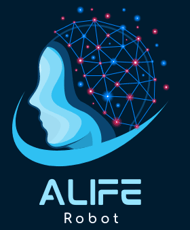The Future of AI: Exploring the Advancements in AI Robotics
4/25/20242 min read


The Future of AI: Exploring the Advancements in AI Robotics
Artificial Intelligence (AI) has revolutionized various industries and continues to shape the way we live and work. One of the most exciting developments in AI is the emergence of AI robots. These intelligent machines have the potential to transform numerous aspects of our society, from healthcare and manufacturing to transportation and entertainment. In this article, we will delve into the future of AI robotics and explore the incredible possibilities they offer.
Enhanced Efficiency and Productivity
AI robots are designed to perform tasks with exceptional precision and efficiency. With their advanced algorithms and machine learning capabilities, these robots can analyze vast amounts of data and make informed decisions in real-time. This level of automation not only reduces human error but also significantly increases productivity. Industries such as manufacturing and logistics can benefit greatly from the use of AI robots, as they can handle repetitive and mundane tasks, allowing human workers to focus on more complex and creative endeavors.
Improved Healthcare and Assistance
The healthcare sector stands to gain immensely from the advancements in AI robotics. AI robots can assist medical professionals in various ways, ranging from patient care to surgical procedures. These robots can be programmed to monitor vital signs, administer medication, and even perform surgeries with unparalleled precision. Additionally, AI robots can provide companionship and support to the elderly and individuals with disabilities, enhancing their quality of life and promoting independent living.
Transforming Transportation and Logistics
The transportation and logistics industry is undergoing a significant transformation with the integration of AI robots. Autonomous vehicles powered by AI algorithms have the potential to revolutionize the way we travel and transport goods. These vehicles can navigate through traffic, make real-time decisions, and optimize routes for maximum efficiency. AI robots can also streamline warehouse operations by autonomously sorting and organizing inventory, reducing human labor and minimizing errors.
Advancements in Education and Research
AI robots have the potential to revolutionize the field of education by personalizing the learning experience for students. These robots can adapt their teaching methods based on individual needs and provide personalized feedback to enhance the learning process. Moreover, AI robots can assist researchers in various scientific endeavors. They can analyze vast amounts of data, identify patterns, and contribute to breakthrough discoveries in fields such as medicine, astronomy, and climate science.
Addressing Ethical and Social Implications
As AI robots become more integrated into our society, it is crucial to address the ethical and social implications that arise. One of the primary concerns is the potential displacement of human workers. While AI robots can automate many tasks, it is essential to ensure that adequate measures are in place to reskill and upskill individuals to thrive in the changing job market. Additionally, ethical considerations such as privacy, security, and the responsible use of AI must be carefully addressed to prevent misuse or unintended consequences.
Conclusion
The future of AI robotics holds immense promise and potential. These intelligent machines have the ability to revolutionize industries, improve efficiency, and enhance our quality of life. However, it is crucial to approach their development and integration with careful consideration of ethical and social implications. By harnessing the power of AI robotics responsibly, we can create a future where humans and machines coexist harmoniously, leveraging their respective strengths to drive progress and innovation.
